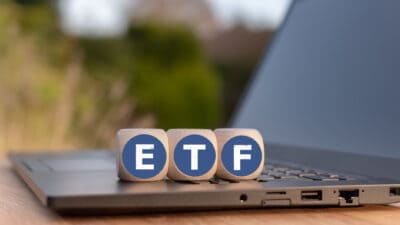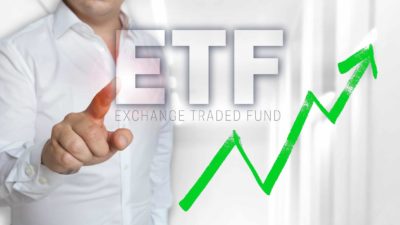The Betashares Nasdaq 100 ETF (ASX: NDQ) has done incredibly well for investors over the short term — and the long term. The unit price of the exchange-traded fund (ETF) is up 39% in 2023 to date, and it's around 100% higher over the last five years.
For readers who don't know, this ASX-listed ETF is invested in 100 of the biggest businesses listed in the US on the NASDAQ stock exchange. The biggest positions in this portfolio are names like Microsoft, Apple, Alphabet (Google), Amazon.com, Tesla, Meta Platforms (Facebook and Instagram), Nvidia, and so on.
I'm still bullish on the NDQ ETF
The companies in the portfolio are some of the biggest businesses in the world. They are leaders in the Western world in such fields as computer software, smartphones, cloud computing, free online video, digital maps, digital advertising, and so on.
I don't think any businesses are going to be able to challenge them in the foreseeable future.
In fact, if there are going to be any new digital services or products, such as AI, virtual reality (VR), or automated driving, I would bet that at least one of these US tech giants will be at the forefront of these developments. Of course, this would then drive their share prices higher over time.
No one can say what share prices are going to do tomorrow, next week, next month, or even over the next year. There could be a dip or even an extended decline later this year but if this was to happen, the NDQ ETF would just look even better value to me.
Unit price valuation
Every month, BetaShares tells investors about some portfolio statistics.
At the end of June 2023, the fund provider told investors about the forward price/earnings (p/e) ratio, which was 26.76 times.
Some might say this p/e ratio is quite high. Compared to businesses in sectors like banking, mining, and industrial, that does seem quite high.
But remember, a large amount of the portfolio is invested in technology businesses which typically come with higher p/e ratios and are growing profit at a faster rate over the long term.
Officially, BetaShares disclosed that IT made up 51% of the portfolio. But some of the main players are classified as being from different industries. For example, Amazon.com and Tesla are classified as consumer discretionary businesses, while Meta Services and Alphabet are classified as communication service businesses.
There are also a number of other high-quality businesses that have very compelling futures, but they just have smaller weightings in the portfolio. These include companies like Costco, Advanced Micro Devices, Intuitive Surgical, Starbucks, MercadoLibre, ASML, and Autodesk.
Foolish takeaway
I think this ETF has a very promising future. While I don't believe it's likely to achieve average returns per annum of 19.4% over the next five years as it has over the last five years, I think it will be capable of producing average returns of more than 10% per annum in the longer term. This is largely because of the quality and profit growth of the underlying companies, which could comfortably beat the S&P/ASX 200 Index (ASX: XJO).









